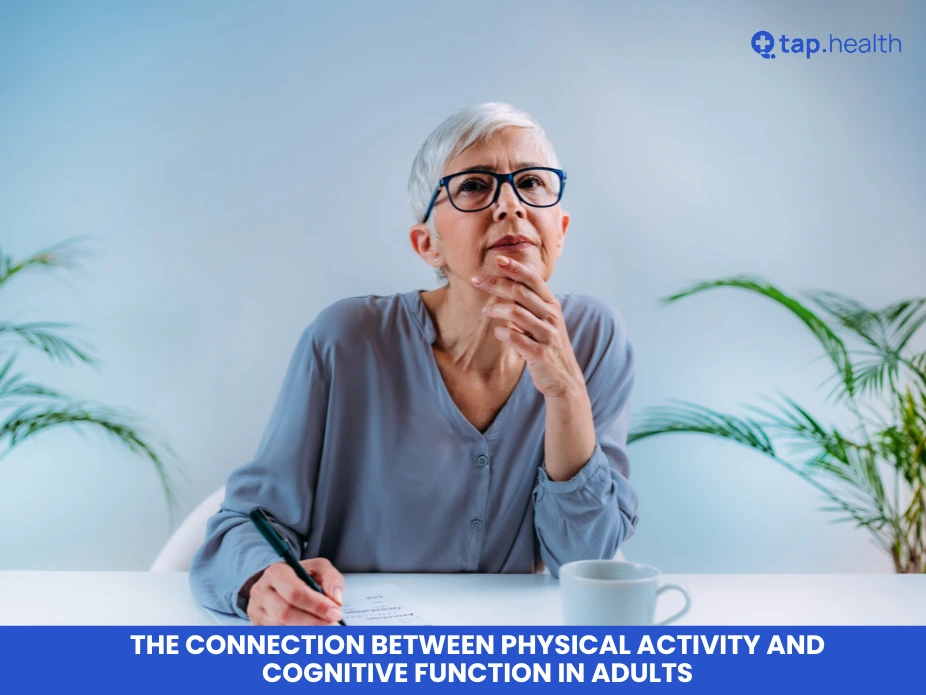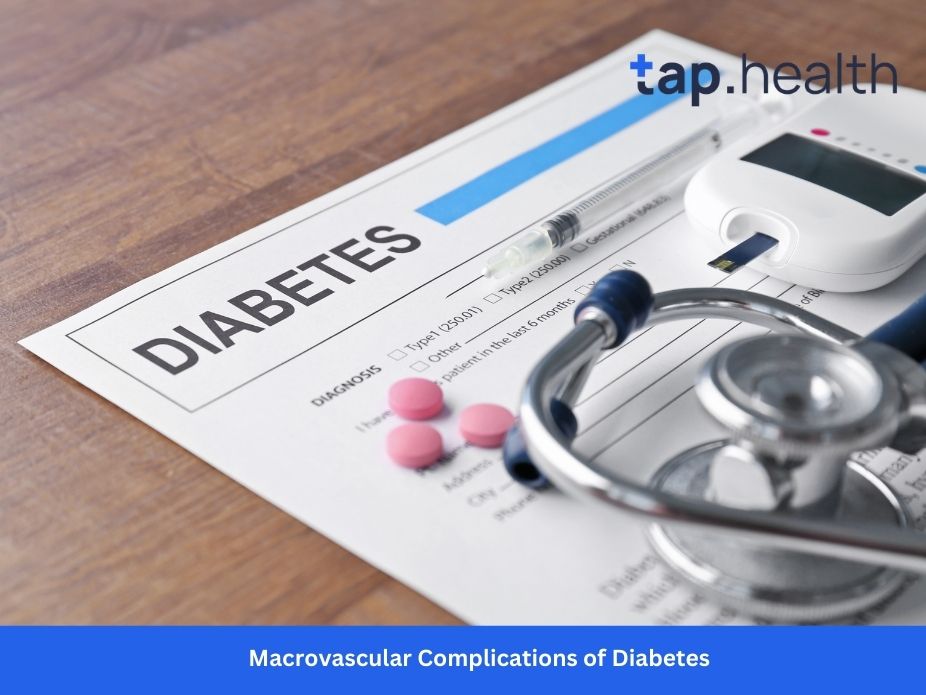In today’s fast-paced world, maintaining both physical and mental health is essential. One of the most effective ways to achieve this balance is through regular physical activity. Beyond improving physical fitness, exercise plays a significant role in enhancing cognitive function in adults. This comprehensive guide delves into the intricate relationship between physical activity and cognitive health, supported by real-life scenarios, expert insights, and research-backed recommendations.
Understanding the Connection Between Physical Activity and Cognitive Function
Cognitive function encompasses various mental processes, including memory, attention, problem-solving, and decision-making. As adults age, maintaining cognitive health becomes increasingly important to ensure a high quality of life. Physical activity has been shown to positively influence these cognitive processes in several ways:
How Physical Activity Enhances Cognitive Function
- Increases Blood Flow to the Brain: Exercise boosts circulation, delivering more oxygen and nutrients to brain cells, which enhances their function and growth.
- Promotes Neurogenesis: Physical activity stimulates the production of new neurons, particularly in the hippocampus, a brain region critical for memory and learning.
- Reduces Inflammation and Oxidative Stress: Regular exercise helps mitigate chronic inflammation and oxidative stress, which are linked to cognitive decline and neurodegenerative diseases.
- Enhances Neuroplasticity: Exercise fosters the brain’s ability to reorganize itself by forming new neural connections, improving adaptability and learning capacity.
- Regulates Hormones: Physical activity influences the balance of neurotransmitters and hormones, such as endorphins and cortisol, which play roles in mood regulation and cognitive function.
Real-Life Scenarios
Understanding the practical impact of physical activity on cognitive function can provide inspiration and actionable insights.
Scenario 1: John’s Memory Boost
Background: John, a 60-year-old retired engineer, noticed a decline in his memory and concentration. Concerned about potential cognitive decline, he decided to incorporate regular physical activity into his routine.
Solution: John began walking briskly for 30 minutes five times a week and joined a local swimming pool for bi-weekly swim sessions. Additionally, he engaged in strength training exercises twice a week.
Outcome: After six months, John experienced significant improvements in his memory retention and concentration levels. His mental clarity enhanced, allowing him to engage more actively in hobbies and social interactions.
Scenario 2: Maria’s Enhanced Learning
Background: Maria, a 45-year-old teacher, sought ways to improve her cognitive function to better manage her professional and personal responsibilities.
Solution: Maria started a yoga and Pilates regimen, attending classes three times a week. She also began cycling on weekends and incorporated short stretching sessions during her work breaks.
Outcome: Maria reported increased mental agility and better stress management. Her ability to multitask improved, and she found it easier to retain new information and plan her lessons more effectively.
Scenario 3: David’s Decision-Making Skills
Background: David, a 35-year-old software developer, struggled with decision-making and problem-solving under tight deadlines.
Solution: David integrated high-intensity interval training (HIIT) into his fitness routine, exercising four times a week. He also took up hiking on weekends to combine physical activity with nature exposure.
Outcome: David observed enhanced problem-solving skills and quicker decision-making abilities. The physical exertion and mental relaxation from hiking contributed to clearer thinking and reduced work-related stress.
Expert Contributions
Insights from professionals in the fields of neuroscience, psychology, and fitness provide a deeper understanding of the connection between physical activity and cognitive function.
Dr. Laura Thompson, Neuroscientist
“Regular physical activity is one of the most effective ways to maintain and enhance cognitive function. Exercise promotes the release of growth factors that support the survival and growth of neurons, particularly in areas of the brain associated with memory and learning.”
Dr. Michael Lee, Clinical Psychologist
“Physical activity not only benefits the body but also has profound effects on the mind. It reduces symptoms of anxiety and depression, which can indirectly improve cognitive performance by creating a more conducive mental state for learning and problem-solving.”
Emily Davis, Fitness Trainer
“Tailoring physical activity to individual needs and preferences is key to ensuring consistency and effectiveness. Whether it’s aerobic exercises, strength training, or flexibility workouts, each type contributes uniquely to cognitive health.”
Dr. Robert Martin, Geriatrician
“For older adults, maintaining cognitive function is crucial for independence and quality of life. Incorporating regular physical activity into daily routines can delay the onset of cognitive decline and reduce the risk of neurodegenerative diseases like Alzheimer’s.”
Recommendations Grounded in Proven Research and Facts
Implementing evidence-based strategies ensures that the physical activity you engage in effectively supports cognitive health.
1. Engage in Aerobic Exercise
Why It Works: Aerobic exercises, such as walking, running, and cycling, increase heart rate and blood flow to the brain, promoting neurogenesis and enhancing cognitive function.
How to Implement:
- Aim for at least 150 minutes of moderate-intensity aerobic exercise per week.
- Choose activities you enjoy to maintain consistency.
- Incorporate aerobic exercises into your daily routine, such as biking to work or taking brisk walks during lunch breaks.
2. Incorporate Strength Training
Why It Works: Strength training improves muscle mass and metabolism, which supports overall brain health by enhancing the body’s ability to process nutrients essential for cognitive function.
How to Implement:
- Include strength training exercises at least twice a week.
- Use free weights, resistance bands, or body-weight exercises like push-ups and squats.
- Focus on major muscle groups to maximize benefits.
3. Practice Mind-Body Exercises
Why It Works: Activities like yoga and Pilates combine physical movement with mental focus, reducing stress and enhancing cognitive flexibility and concentration.
How to Implement:
- Join a local yoga or Pilates class.
- Follow online tutorials if attending classes in person is not feasible.
- Dedicate time each week to practice these exercises, aiming for at least two sessions.
4. Stay Consistent with Your Routine
Why It Works: Consistency in physical activity reinforces the benefits, ensuring long-term improvements in cognitive function.
How to Implement:
- Schedule regular workout sessions in your calendar.
- Set achievable goals to stay motivated.
- Track your progress using fitness apps or journals to maintain accountability.
5. Incorporate Variety in Your Workouts
Why It Works: Mixing different types of physical activities prevents monotony and ensures that various cognitive functions are engaged.
How to Implement:
- Alternate between different forms of exercise, such as aerobic, strength, and flexibility workouts.
- Try new activities to keep your routine interesting and challenging.
- Listen to your body and adjust the intensity and type of exercise as needed.
6. Prioritize Rest and Recovery
Why It Works: Adequate rest allows the brain to consolidate memories and repair itself, which is essential for cognitive function.
How to Implement:
- Ensure you get 7-9 hours of quality sleep each night.
- Incorporate rest days into your exercise routine to allow your body and mind to recover.
- Practice relaxation techniques, such as meditation or deep breathing, to enhance recovery.
7. Maintain a Healthy Diet
Why It Works: A balanced diet rich in essential nutrients supports both physical and cognitive health, providing the necessary fuel for brain function.
How to Implement:
- Consume a variety of fruits, vegetables, whole grains, lean proteins, and healthy fats.
- Incorporate foods high in omega-3 fatty acids, antioxidants, and vitamins that support brain health.
- Stay hydrated by drinking plenty of water throughout the day.
8. Manage Stress Effectively
Why It Works: Chronic stress negatively impacts cognitive function, so managing stress is crucial for maintaining mental clarity and focus.
How to Implement:
- Practice stress-reduction techniques like mindfulness meditation, yoga, or journaling.
- Take regular breaks during work or study sessions to relax and recharge.
- Engage in hobbies and activities that bring you joy and relaxation.
9. Stay Socially Active
Why It Works: Social interactions stimulate the brain, improve mood, and enhance cognitive resilience.
How to Implement:
- Join clubs, groups, or classes that align with your interests.
- Maintain regular contact with friends and family through calls, video chats, or social gatherings.
- Participate in community activities or volunteer work to stay engaged and connected.
10. Challenge Your Brain
Why It Works: Mental stimulation complements physical activity by promoting neuroplasticity and cognitive resilience.
How to Implement:
- Engage in activities that require mental effort, such as puzzles, reading, or learning a new skill.
- Combine physical and mental challenges, like dancing or playing sports that require strategy.
- Continuously seek new experiences that stimulate your mind and body.
Factual and Reliable Information
Understanding the scientific basis of how physical activity influences cognitive function reinforces the importance of these practices.
Research Findings on Physical Activity and Cognitive Function
Numerous studies have established a strong link between physical activity and improved cognitive function in adults. Key findings include:
- Neurogenesis and Brain Plasticity: Research published in the Journal of Neuroscience indicates that aerobic exercise promotes the growth of new neurons in the hippocampus, a region crucial for memory and learning.
- Improved Memory and Learning: A study in Psychological Science found that regular physical activity enhances memory retention and the ability to learn new information.
- Reduced Risk of Cognitive Decline: According to the British Journal of Sports Medicine, adults who engage in regular physical activity have a lower risk of developing cognitive impairments and dementia.
- Enhanced Executive Function: Research in Frontiers in Aging Neuroscience shows that exercise improves executive functions such as planning, decision-making, and multitasking.
- Mood Regulation: Physical activity releases endorphins and other neurotransmitters that improve mood and reduce symptoms of depression and anxiety, indirectly supporting cognitive function.
The Role of Physical Activity in Preventing Neurodegenerative Diseases
Engaging in regular physical activity has been shown to reduce the risk of neurodegenerative diseases like Alzheimer’s and Parkinson’s. Exercise helps maintain healthy blood flow to the brain, reduces inflammation, and supports the removal of toxic proteins that contribute to these conditions.
Cognitive Benefits Across Different Age Groups
While physical activity benefits cognitive function in adults of all ages, the specific advantages may vary:
- Young Adults: Enhanced learning capacity, memory, and academic performance.
- Middle-Aged Adults: Improved executive functions, stress management, and prevention of cognitive decline.
- Older Adults: Delayed onset of cognitive impairments, maintenance of memory, and reduced risk of dementia.
Mechanisms Behind the Benefits
Understanding the biological mechanisms helps appreciate why physical activity is so beneficial:
- Brain-Derived Neurotrophic Factor (BDNF): Exercise increases the production of BDNF, a protein that supports neuron growth and survival.
- Vascular Health: Physical activity improves cardiovascular health, ensuring efficient blood flow and oxygen delivery to the brain.
- Hormonal Balance: Exercise regulates hormones like cortisol and adrenaline, reducing stress and promoting a balanced mood.
- Synaptic Plasticity: Physical activity enhances the connections between neurons, facilitating better communication within the brain.
Creating a Personalized Physical Activity Plan
Developing a tailored exercise routine ensures that physical activity effectively supports your cognitive health goals.
Steps to Create Your Plan
- Assess Your Current Fitness Level:
- Evaluate your current physical condition, including any health issues or limitations.
- Consider consulting a healthcare provider before starting a new exercise regimen.
- Set Clear, Achievable Goals:
- Define what you want to achieve, such as improving memory, increasing concentration, or reducing stress.
- Set short-term and long-term goals to stay motivated and track progress.
- Choose Suitable Types of Exercise:
- Incorporate a mix of aerobic, strength, flexibility, and mind-body exercises.
- Select activities that you enjoy to ensure consistency.
- Create a Schedule:
- Plan your workouts at times that fit into your daily routine.
- Aim for at least 150 minutes of moderate-intensity aerobic activity per week, along with strength training exercises on two or more days.
- Monitor and Adjust:
- Track your progress using fitness apps or journals.
- Adjust the intensity, duration, and types of exercises based on your progress and feedback from your body.
Example Personalized Plan
Morning:
- 10 minutes of stretching or yoga to start the day with flexibility and calmness.
- A brisk 30-minute walk or jog to boost blood flow and wake up the brain.
Afternoon:
- A 15-minute mindfulness meditation session to reduce stress and enhance focus.
- Strength training exercises using weights or resistance bands for 20 minutes.
Evening:
- A 30-minute cycling session or swimming to wind down and promote relaxation.
- Gentle stretching or deep breathing exercises before bed to prepare for restful sleep.
Incorporating Technology for Enhanced Cognitive Benefits
Leveraging technology can optimize your physical activity routine and maximize cognitive benefits.
Useful Tools and Apps
- Fitness Trackers: Devices like Fitbit or Apple Watch monitor your physical activity, heart rate, and sleep patterns, providing valuable data to optimize your workouts.
- Workout Apps: Apps like Nike Training Club, Strava, or MyFitnessPal offer guided workouts, track progress, and help set fitness goals.
- Mindfulness Apps: Apps such as Headspace and Calm provide guided meditation sessions to complement your physical activity routine.
- Virtual Classes: Platforms like Peloton, Zoom, and YouTube offer virtual exercise classes, allowing you to engage in a variety of workouts from home.
Benefits of Using Technology
- Personalization: Tailored workout plans based on your fitness level and cognitive health goals.
- Motivation: Gamified fitness challenges and progress tracking keep you motivated and accountable.
- Accessibility: Access to a wide range of exercises and expert guidance anytime, anywhere.
- Integration: Combining physical activity data with other health metrics for a holistic view of your well-being.
Overcoming Common Challenges
Implementing a consistent physical activity routine can come with obstacles. Here are strategies to overcome common challenges:
Challenge 1: Lack of Time
Solution:
- Incorporate short, high-intensity workouts that fit into a busy schedule.
- Break workouts into smaller sessions throughout the day.
- Prioritize physical activity by scheduling it like any other important appointment.
Challenge 2: Low Motivation
Solution:
- Set specific, achievable goals and celebrate milestones.
- Find a workout buddy or join group classes for accountability.
- Choose activities you enjoy to make exercise feel less like a chore.
Challenge 3: Physical Limitations or Health Issues
Solution:
- Consult with a healthcare provider to tailor exercises to your abilities.
- Focus on low-impact activities like swimming, cycling, or yoga.
- Gradually increase intensity to avoid injury and build strength.
Challenge 4: Maintaining Consistency
Solution:
- Create a structured routine with designated workout times.
- Use reminders and alarms to stay on track.
- Vary your workouts to keep them interesting and prevent boredom.
Challenge 5: Managing Stress and Mental Fatigue
Solution:
- Incorporate relaxation techniques such as meditation or deep breathing into your routine.
- Ensure adequate rest and recovery between workouts.
- Balance physical activity with mental health practices to support overall well-being.
Social Support and Community
Building a support network can significantly enhance your commitment to physical activity and cognitive health.
Ways to Build Support
- Join Fitness Groups or Clubs: Engage with like-minded individuals who share your fitness and cognitive health goals.
- Participate in Online Communities: Connect with others through forums, social media groups, or virtual classes to share experiences and tips.
- Seek Professional Guidance: Work with fitness trainers, nutritionists, or cognitive health specialists to receive personalized advice and support.
Benefits of Social Support
- Accountability: Regular check-ins and shared goals keep you motivated.
- Encouragement: Supportive peers provide emotional reinforcement and celebrate your achievements.
- Shared Knowledge: Learning from others’ experiences can introduce new strategies and ideas for enhancing cognitive function through physical activity.
Maintaining Consistency
Consistency is key to reaping the long-term cognitive benefits of physical activity. Here are strategies to help you stay committed:
Tips for Consistency
- Set Realistic Goals: Ensure your fitness goals are achievable and align with your cognitive health objectives.
- Track Your Progress: Use journals, apps, or fitness trackers to monitor your workouts and cognitive improvements.
- Stay Flexible: Adapt your routine as needed to accommodate changes in your schedule or physical condition.
- Reward Yourself: Acknowledge and reward your efforts to stay motivated and maintain momentum.
Example Consistency Strategies
- Morning Rituals: Start your day with a consistent morning workout to set a positive tone.
- Scheduled Workouts: Designate specific times for exercise and treat them as non-negotiable appointments.
- Variety in Workouts: Incorporate different types of exercises to keep your routine engaging and prevent plateauing.
Adapting to Changing Needs
As your life circumstances and fitness levels evolve, so should your physical activity routine to continue supporting cognitive function effectively.
How to Adapt
- Regular Assessments: Periodically evaluate your fitness and cognitive health to identify areas needing adjustment.
- Incremental Changes: Gradually modify your exercise routine to incorporate new activities or increase intensity.
- Seek Feedback: Consult with fitness and healthcare professionals to ensure your routine remains effective and safe.
Example Adaptations
- Increasing Intensity: As your fitness improves, gradually increase the intensity or duration of your workouts to continue challenging your body and brain.
- Incorporating New Activities: Try new forms of exercise, such as dance classes or martial arts, to engage different cognitive and physical skills.
- Balancing Workouts: Adjust the balance between aerobic, strength, and mind-body exercises based on your current cognitive and physical health needs.
Frequently Asked Questions (FAQ) on The Connection Between Physical Activity and Cognitive Function in Adults
1. How does physical activity improve cognitive function?
Answer: Physical activity enhances cognitive function by increasing blood flow to the brain, promoting neurogenesis, reducing inflammation, improving neuroplasticity, and regulating hormones that support brain health.
2. What types of exercise are best for boosting brain health?
Answer: Aerobic exercises (like walking, running, and cycling), strength training, and mind-body exercises (such as yoga and Pilates) are all effective for enhancing cognitive function.
3. How often should I exercise to see cognitive benefits?
Answer: Aim for at least 150 minutes of moderate-intensity aerobic exercise per week, combined with strength training exercises on two or more days, to achieve significant cognitive benefits.
4. Can physical activity help prevent cognitive decline as I age?
Answer: Yes, regular physical activity can delay the onset of cognitive decline and reduce the risk of neurodegenerative diseases like Alzheimer’s by supporting brain health and function.
5. Do I need to engage in intense workouts to improve my brain function?
Answer: No, even moderate-intensity exercises can provide substantial cognitive benefits. The key is consistency and finding activities that you enjoy and can maintain over time.
6. How quickly can I see improvements in cognitive function from exercising?
Answer: Some cognitive benefits, such as improved mood and increased alertness, can be felt immediately after exercise. More significant changes in memory and executive function typically develop over several weeks of regular physical activity.
7. Is there a link between physical activity and mental health?
Answer: Yes, physical activity is closely linked to improved mental health by reducing symptoms of anxiety and depression, enhancing mood, and promoting overall emotional well-being, which in turn supports cognitive function.
8. Can exercise help with stress management?
Answer: Absolutely. Physical activity releases endorphins, which are natural mood lifters, and reduces levels of stress hormones like cortisol, helping to manage and alleviate stress.
9. What should I do if I experience cognitive fatigue despite regular exercise?
Answer: If you experience cognitive fatigue, consider evaluating your overall lifestyle, including sleep quality, diet, and stress levels. It may also be beneficial to consult with a healthcare professional to address any underlying issues.
10. Are there specific nutrients that support the cognitive benefits of exercise?
Answer: Yes, nutrients like omega-3 fatty acids, antioxidants, vitamins B, D, and E, and minerals like magnesium and zinc support brain health and can enhance the cognitive benefits of physical activity.
Conclusion
The connection between physical activity and cognitive function in adults is profound and well-supported by scientific research. Engaging in regular exercise not only enhances physical health but also plays a crucial role in maintaining and improving cognitive abilities. By understanding the mechanisms behind this connection, implementing effective strategies, and overcoming common challenges, adults can harness the power of physical activity to support their brain health and overall well-being.
Incorporating a variety of exercises, maintaining consistency, leveraging technology, and seeking social support are key components of an effective physical activity regimen that promotes cognitive function. Additionally, adapting to changing needs and staying informed about the latest research can help you sustain these benefits over the long term.
Prioritizing physical activity as part of your daily routine can lead to enhanced memory, improved concentration, better decision-making skills, and a reduced risk of cognitive decline. Embrace these strategies to enjoy a sharper, healthier mind and a more fulfilling life.
References:
- American Psychological Association: The Exercise Effect
- Journal of Occupational Health Psychology: Sleep Hygiene and Stress
- National Institutes of Health: Exercise and Brain Health
- Harvard Medical School: The Benefits of Exercise for the Brain
- Mayo Clinic: Exercise and Stress: Get Moving to Manage Stress



